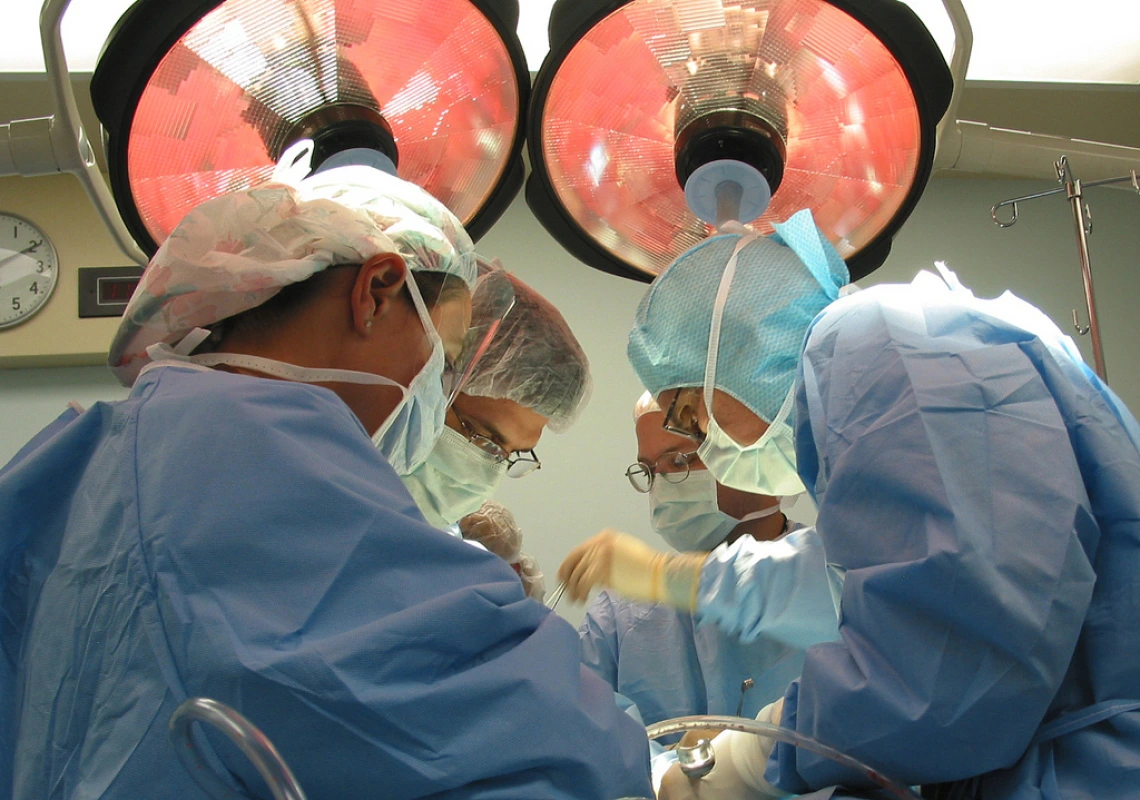New Capstone Sponsor Positions Students to Help Improve Surgical Outcomes

Jeffrey Owen earned his Ph.D. in neuroscience from The University of Arizona and has led a successful career in medicine across multiple states. Now, he’s returning to campus. Owen and his Tucson-based company NeuroVascular Research & Design are new sponsors for the Interdisciplinary Capstone program and will work with students to improve patient quality of life using technology.
While NeuroVascular Research & Design has previously worked with UA interns, the company has never before sponsored an academic program of this magnitude.
“I heard about the program and I thought it was just perfect,” Owen said. “People from all over the country have heard of it. I’m really looking forward to working with these students.... I wish I had an opportunity like this when I was in school.”
NeuroVascular Research & Design formed in 2019 in response to requests from surgeons who wanted updated procedures for spine and prostate surgery. According to Owen, current methods for monitoring neurological activity and blood flow during the surgeries are heavily personnel driven. Unfortunately, people can make mistakes. These result in false positive or false negative readings on monitoring equipment during surgeries, which can have serious ramifications for the patient. Owen is aiming to use machine learning for collection and interpretation of data during medical procedures.
“If you give a surgeon a false positive, then after a while they don’t believe it. And then eventually when they do get a true positive, the validity of the monitoring goes way down,” Owen said. “We think using artificial intelligence will allow us to automatically and more reliably administer the tests, and then coupling that with machine learning, we will be able to make the tests more sensitive to true surgical variables.”
NeuroVascular Research & Design is sponsoring two teams this academic year, both of which include students studying a variety of engineering disciplines. Both projects use technology and machine learning to increase detection rates and sensitivity during high-risk surgeries.
Team 24003 is developing software that will improve “signal-to-noise ratio” during medical procedures. Signal-to-noise is the measurement of desired information against background noise – in this case, neurological activity. This is measured in the tenth-of-a-microvolt range, a very small signal that to detect often requires taking multiple samples and averaging them.
“But this takes a while, so that when you do detect a change in neurological function, the damage is already done,” Owen said. “So if you can improve the signal-to-noise ratio, in order to warn the surgeon when something is going wrong quicker, you can improve surgical outcomes.”
Team 24004 will focus on monitoring blood flow during spinal surgery. According to Owen, surgeons lack tests to monitor the direct blood flow of the anterior spinal artery. Instead, tests monitor the nerves that receive blood flow from the artery, but they’re not sensitive. The issue here is that if the artery is compromised from a surgical maneuver, it will take four or five minutes for the nerves to start behaving abnormally. By then, the patient can be irreversibly paralyzed.
To help solve this, Team 24004 will develop a small probe that the surgeon can slip into the spinal canal to directly measure arterial blood flow. This would include a light source, a photodiode, and a fiber-optic cable all connected to a control box. Ideally, this would result in an instantaneous recording of blood flow on the cord.
“You want to increase the sensitivity of a test for the onset of an insult, and by doing that, you can initiate intervention quicker,” Owen said. “And the sooner you administer intervention, the more effective it is. This is all to maintain quality of life.”

